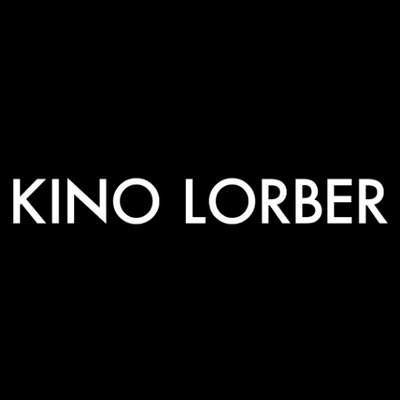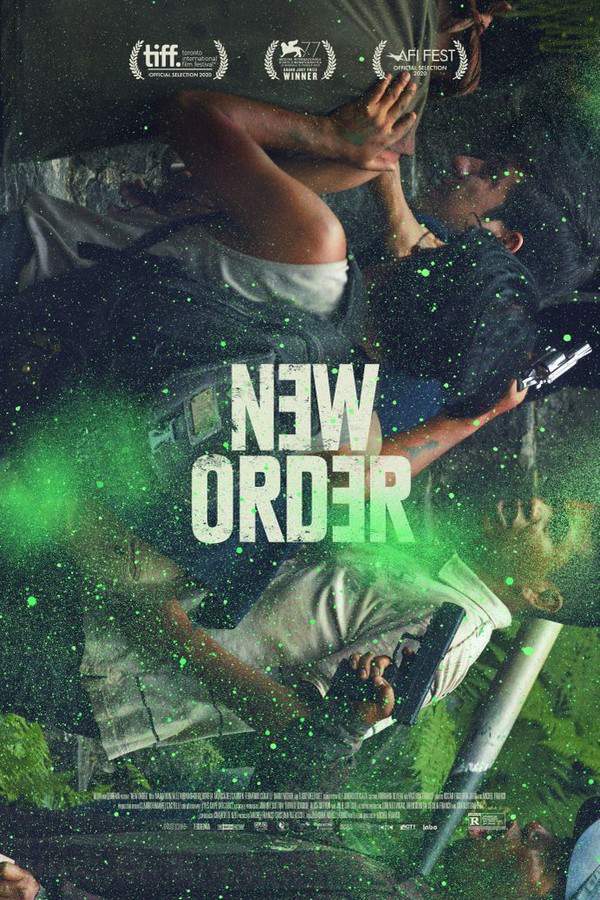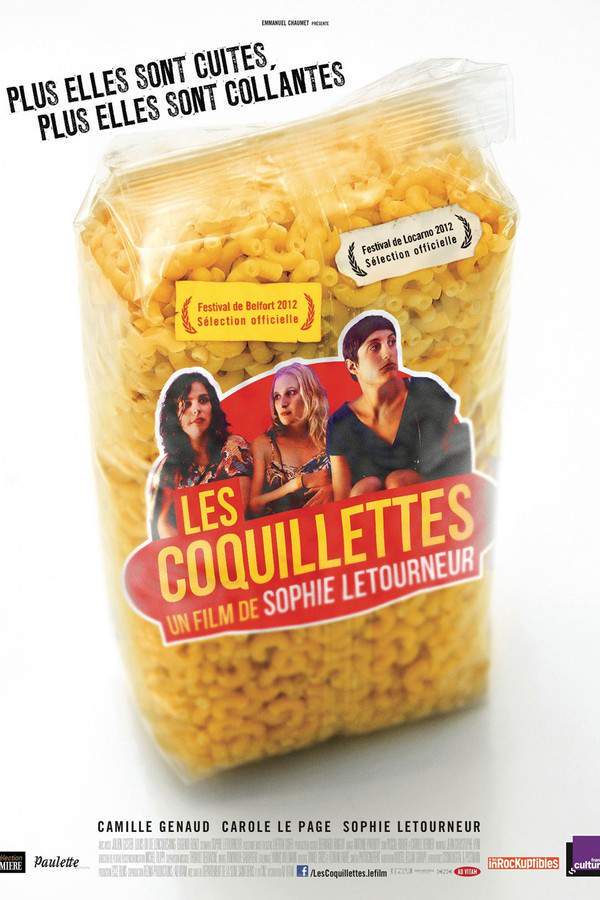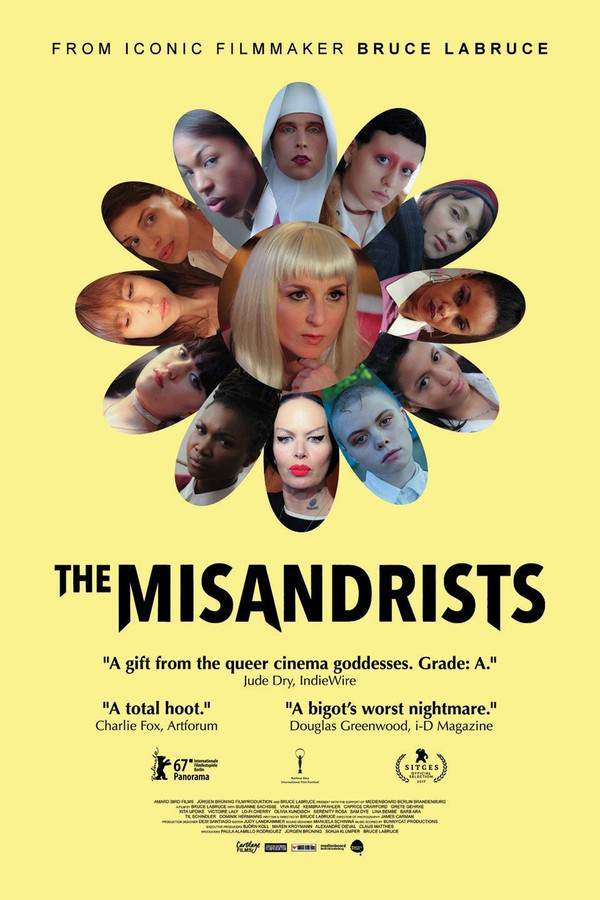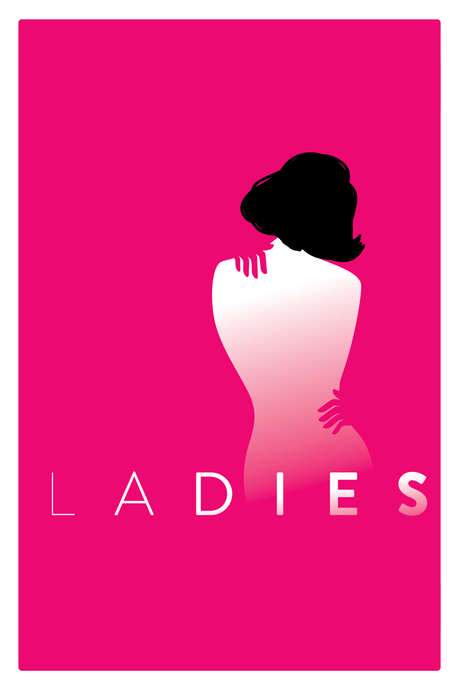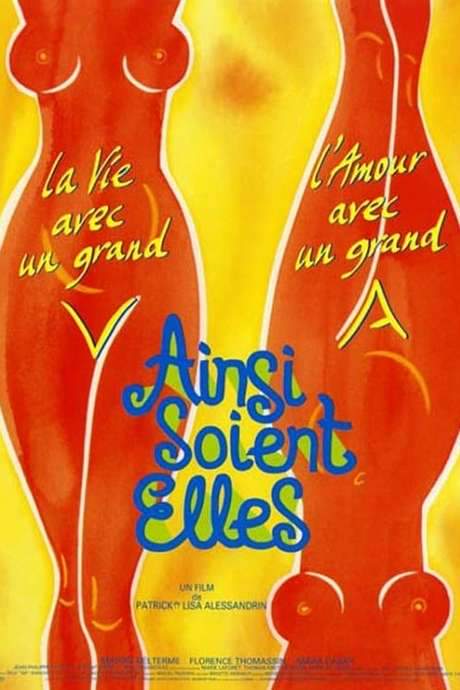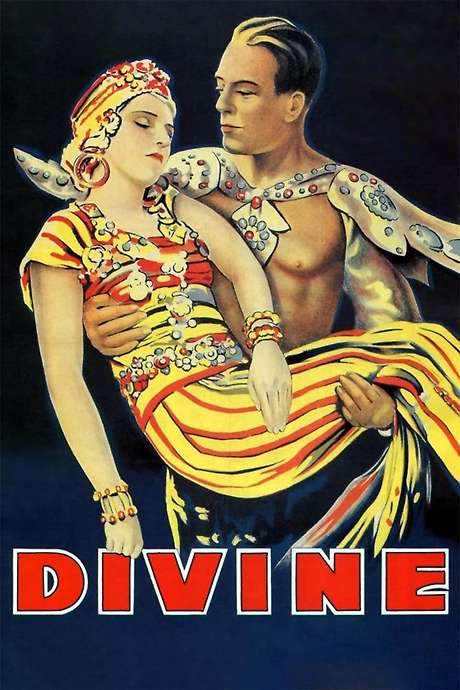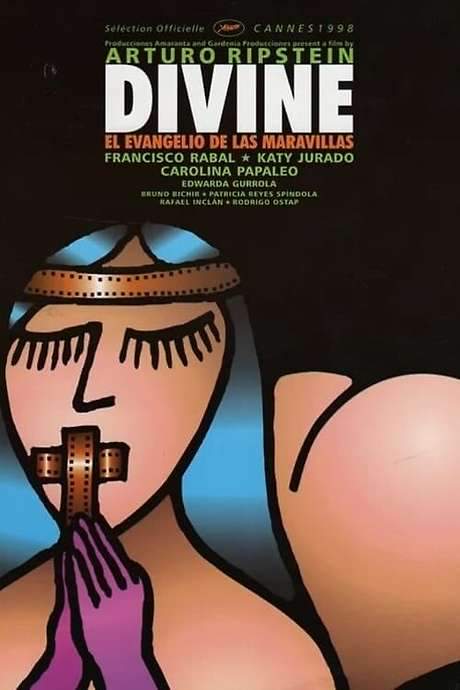The Divine Order 2017
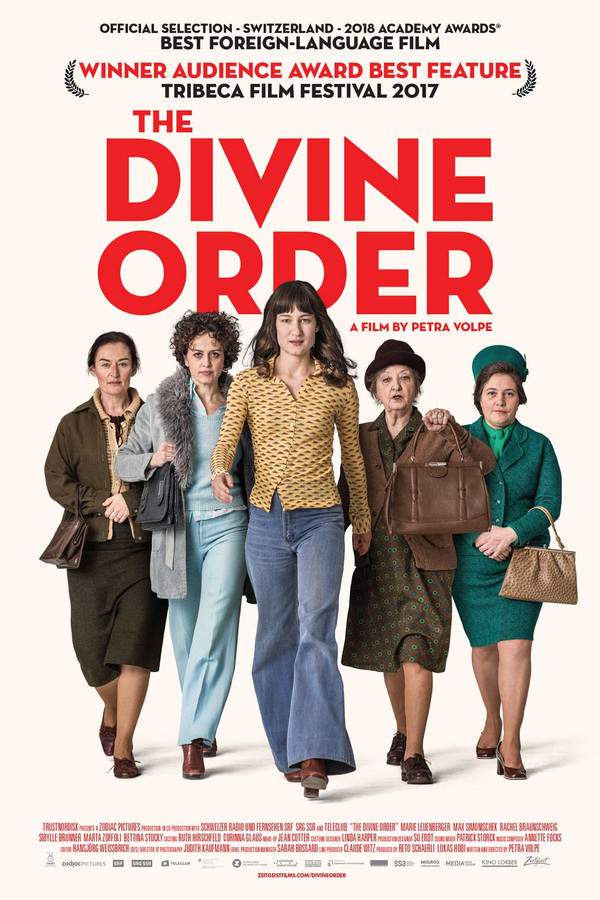
In 1971 Switzerland, Nora, a dedicated homemaker, challenges the country's traditional societal norms and becomes a prominent figure in the burgeoning women's suffrage movement. Her decision to fight for equality sparks controversy and resistance, leading to ridicule and threatening her established life and marriage. As Nora confronts the complexities of liberation, she inspires others to question the status quo and fight for a more equitable future.
Does The Divine Order have end credit scenes?
No!
The Divine Order does not have end credit scenes. You can leave when the credits roll.
Meet the Full Cast and Actors of The Divine Order
Explore the complete cast of The Divine Order, including both lead and supporting actors. Learn who plays each character, discover their past roles and achievements, and find out what makes this ensemble cast stand out in the world of film and television.
External Links and Streaming Options
Discover where to watch The Divine Order online, including streaming platforms, rental options, and official sources. Compare reviews, ratings, and in-depth movie information across sites like IMDb, TMDb, Wikipedia or Rotten Tomatoes.
Ratings and Reviews for The Divine Order
See how The Divine Order is rated across major platforms like IMDb, Metacritic, and TMDb. Compare audience scores and critic reviews to understand where The Divine Order stands among top-rated movies in its genre.

The Movie Echo Score
The Divine Order delivers a moderately engaging drama with commendable character work but limited narrative depth. It strikes a balance between brisk pacing and personal moments, anchored by Leuenberger’s performance. While the film’s treatment of feminist themes brings timely resonance and the anthemic soundtrack adds warmth, the predictable plotting and occasional lack of complexity temper its impact. Overall, it offers a satisfying but not fully compelling experience.
The Movie Echo Score Breakdown for The Divine Order

Art & Craft
In terms of art and craft, Volpe’s direction maintains a steady rhythm and highlights personal moments with clarity. The film’s editing supports its brisk 96-minute runtime without feeling forced. Production design and cinematography provide a coherent period atmosphere, though they rarely venture beyond competent execution. Overall, the visual storytelling feels serviceable if not notably inventive.

Character & Emotion
In terms of character and emotion, Leuenberger’s portrayal of Nora brings understated depth and emotional resonance, capturing both vulnerability and determination. Supporting characters are given space to breathe, and the film’s lyrics-driven anthems help convey interpersonal dynamics. However, some figures feel broadly drawn and lack inner complexity. Overall, the central performances elevate the narrative despite occasional superficiality.

Story & Flow
In terms of story and flow, the film unfolds with measured pacing and clear narrative structure. The brisk 96-minute runtime keeps events moving without feeling rushed. However, the plot often follows predictable beats and avoids deeper complexity, reducing opportunities for surprising developments. Overall, the storyline engages but lacks originality.

Sensory Experience
In terms of sensory experience, the soundtrack’s use of period anthems provides a lively complement to the on-screen action. Sound design remains unobtrusive, supporting dialogue and ambient atmosphere. Visually, the film employs an understated color palette that aligns with its historical setting but seldom delivers striking imagery. Overall, the sensory elements are cohesive yet modest.

Rewatch Factor
In terms of rewatch factor, the film’s thematic resonance and central performance offer some appeal upon subsequent viewings. The concise runtime and clear character arcs facilitate repeat engagement. However, the predictability of plot beats and limited narrative surprises may diminish its lasting appeal. Overall, the movie retains moderate rewatch value.

67
Metascore
5.9
User Score


85%
TOMATOMETER

62%
User Score

7.1 /10
IMDb Rating

73
%
User Score

3.6
From 6 fan ratings

1.00/5
From 4 fan ratings
Take the Ultimate The Divine Order Movie Quiz
Challenge your knowledge of The Divine Order with this fun and interactive movie quiz. Test yourself on key plot points, iconic characters, hidden details, and memorable moments to see how well you really know the film.
The Divine Order Quiz: Test your knowledge on 'The Divine Order', a powerful film about women's suffrage in 1970s Switzerland.
What is the primary focus of Nora Ruckstuhl's struggle in the film?
Women's suffrage
Domestic duties
Economic independence
Childcare
Show hint
Full Plot Summary and Ending Explained for The Divine Order
Read the complete plot summary of The Divine Order, including all major events, twists, and the full ending explained in detail. Explore key characters, themes, hidden meanings, and everything you need to understand the story from beginning to end.
In the midst of the transformative 1970s, where black power, women’s liberation, and the sexual revolution swept across America, Nora Ruckstuhl, portrayed by Marie Leuenberger, finds herself confined to the mundane life of a housewife in a quaint Swiss farming village. Living with her husband, Hans (Maximilian Simonischek), their two sons, and her father-in-law, Nora feels increasingly discontented with her household duties. When she suggests returning to work to escape her boredom, Hans proposes having another child instead, dismissing her aspirations.
Troubled by her niece Hanna’s situation, who is heartbroken after her mother prohibits her from seeing her much older boyfriend, Nora ultimately allows her to meet him one last time. However, their excursion leads to Hanna running off with him. As Nora wanders the downtown area, she encounters a group of women demonstrating for women’s suffrage. Gradually, she finds herself acknowledging her support for women’s rights, receiving flyers and reading materials, including Betty Friedan’s influential book, The Feminine Mystique.
Despite her growing desire to work, her husband remains firmly unsupportive. The situation escalates when Nora discovers that Hanna has been detained in Zurich and is being sent to a juvenile detention facility, adding to her frustration. Motivated by her niece’s plight and fueled by her recent personal awakenings, Nora boldly stands up for women’s suffrage during a meeting at her women’s club. Her impassioned declaration catches the eye of Vroni (Sibylle Brunner), an elder woman who claims a lifelong commitment to the women’s right to vote. Vroni convinces Nora to host an event to rally support for the cause, despite Nora’s initial hesitance, especially with her husband away on military service for two weeks.
While reflecting on her past ownership of a pub, Vroni meets Graziella (Marta Zoffoli), an Italian woman eager to turn the pub into a pizzeria. Graziella’s enthusiasm for their cause strengthens their bond. They are soon joined by Theresa (Therese Affolter), Nora’s sister-in-law, who is infuriated when Hanna is released from juvenile detention only to be placed in a women’s prison. Spurred by her daughter’s shame, Theresa joins forces with Nora, believing that achieving the right to vote could aid in her efforts to secure Hanna’s freedom.
Together, Nora, Vroni, and Theresa venture to the city, where they participate in a women’s rights protest and attend a workshop teaching about self-discovery, causing Nora to confront her own unfulfilled desires. Reinvigorated by her newfound knowledge, she returns to her village to advocate for women’s suffrage. However, her speech fails to ignite enthusiasm, as few, including her husband Hans, openly support the cause, although they privately agree.
Feeling discouraged by the lack of public backing, Nora is inspired by Graziella’s suggestion that the village women go on strike, leading them to establish camp in Graziella’s restaurant and leaving their men to manage on their own. Tensions rise as Hans navigates the challenges of caring for their children and his father, while being approached by men demanding he persuade Nora to end the strike. Instead, Hans stands firm, insisting that the men resolve their issues with their wives directly. Tensions boil over when several men violently force their wives out of the restaurant, leading to a tragic moment when Vroni, in a fit of rage, suffers a fatal heart attack.
In the aftermath of Vroni’s death, the women retreat to their homes, save for Theresa, who chooses to divorce her husband and live with a cousin. The atmosphere remains strained between Nora and Hans, yet Nora attends Vroni’s funeral with her family, where she openly challenges the priest’s assertion of Vroni’s modest contentment, leading to a reconciliation with Hans.
As the referendum to grant women the right to vote approaches, hope reignites when women across the village, including Nora, cast their votes, resulting in a narrow victory for women’s suffrage even in their community. Theresa is able to rescue Hanna, who forgives her mother but decides to pursue a life with her boyfriend. The narrative culminates as Nora’s children learn independence, and both Nora and Hans embark on their own sexual awakening, finally discovering how to satisfy each other in a way they never thought possible.
Uncover the Details: Timeline, Characters, Themes, and Beyond!

Coming soon on iOS and Android
The Plot Explained Mobile App
From blockbusters to hidden gems — dive into movie stories anytime, anywhere. Save your favorites, discover plots faster, and never miss a twist again.
Sign up to be the first to know when we launch. Your email stays private — always.
Watch Trailers, Clips & Behind-the-Scenes for The Divine Order
Watch official trailers, exclusive clips, cast interviews, and behind-the-scenes footage from The Divine Order. Dive deeper into the making of the film, its standout moments, and key production insights.
The Divine Order Themes and Keywords
Discover the central themes, ideas, and keywords that define the movie’s story, tone, and message. Analyze the film’s deeper meanings, genre influences, and recurring concepts.
The Divine Order Other Names and Titles
Explore the various alternative titles, translations, and other names used for The Divine Order across different regions and languages. Understand how the film is marketed and recognized worldwide.
Similar Movies To The Divine Order You Should Know About
Browse a curated list of movies similar in genre, tone, characters, or story structure. Discover new titles like the one you're watching, perfect for fans of related plots, vibes, or cinematic styles.
Quick Links: Summary, Cast, Ratings, More

What's After the Movie?
Not sure whether to stay after the credits? Find out!
Explore Our Movie Platform
New Movie Releases (2026)
Famous Movie Actors
Top Film Production Studios
Movie Plot Summaries & Endings
Major Movie Awards & Winners
Best Concert Films & Music Documentaries
Movie Collections and Curated Lists
© 2026 What's After the Movie. All rights reserved.


